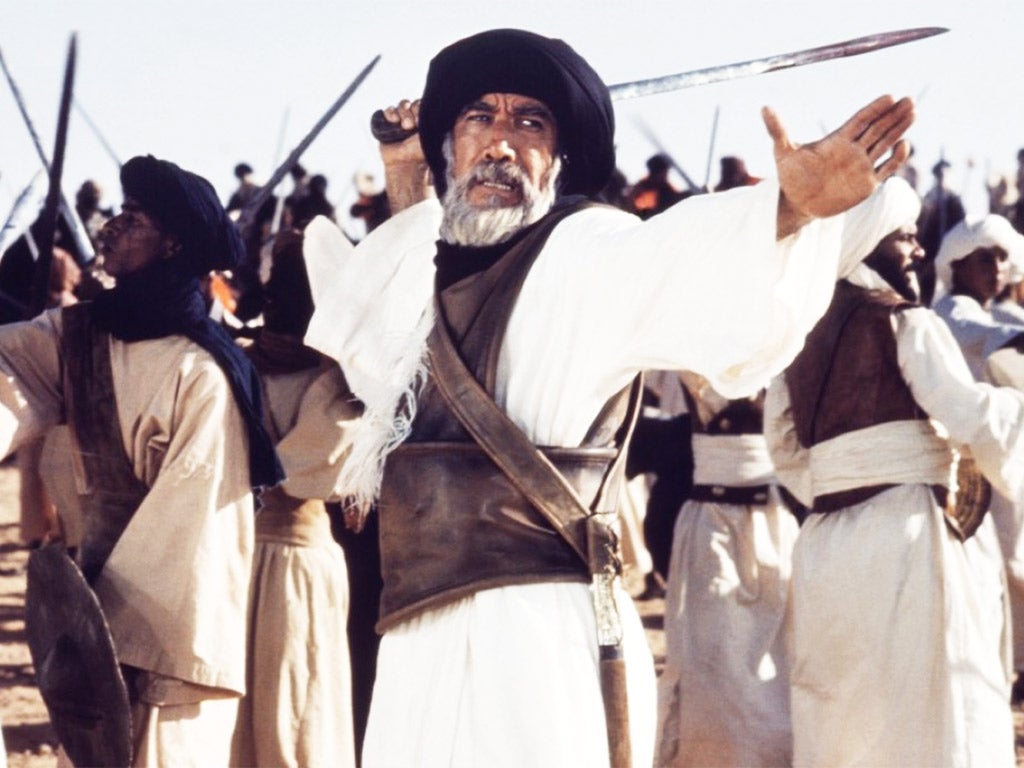Cinema pulls screening of Prophet Mohamed film The Message after receiving fewer than 100 complaints
Grosvenor Cinema in Glasgow was due to screen Oscar-nominated 1977 film on behalf of the Islamic Society of Britain

Your support helps us to tell the story
From reproductive rights to climate change to Big Tech, The Independent is on the ground when the story is developing. Whether it's investigating the financials of Elon Musk's pro-Trump PAC or producing our latest documentary, 'The A Word', which shines a light on the American women fighting for reproductive rights, we know how important it is to parse out the facts from the messaging.
At such a critical moment in US history, we need reporters on the ground. Your donation allows us to keep sending journalists to speak to both sides of the story.
The Independent is trusted by Americans across the entire political spectrum. And unlike many other quality news outlets, we choose not to lock Americans out of our reporting and analysis with paywalls. We believe quality journalism should be available to everyone, paid for by those who can afford it.
Your support makes all the difference.A Scottish cinema has become embroiled in a freedom of speech row after it pulled the screening of a film about the life of the Prophet Mohamed after fewer than 100 complaints.
The Grosvenor Cinema was due to screen the Oscar-nominated 1977 film The Message on Sunday on behalf of the Islamic Society of Britain (ISB). But it pulled the screening after an anonymous petition with 94 signatories – largely from Scotland but also from people registered in Nigeria and Saudi Arabia – criticised the film as being “inappropriate and disrespectful” to Islam.
The ISB called for the cinema to overturn its decision taken after such a “small number of objections” and said: “These protestors demonstrate the worst elements of our community, as they are imposing their beliefs on others.”
Complaints against the film on the petition included the “inappropriate material such as music and dancing” as well as supposed historical inaccuracies and non-Muslim actors portrayed some of the prophet’s closest companions.
The ISB said it “has worked for decades to promote the rights of people to make Islam relevant to British society” before adding: “We will not be bullied by these people and challenge them to make themselves known. We are also appealing for the Grosvenor to stick to the original agreement and show the film.”
Their cause was supported by Scottish National Party MSP Humza Yousaf who was “appalled” the cinema had caved in to “a few narrow-minded imbeciles”.
It has even found support from the National Secular Society (NSS), which has condemned pulling the screening as “contributing to the climate of censorship”. Stephen Evans, a campaign manager for the NSS, said: “Incidents like this have a real effect on free speech. The limits on what is deemed to be acceptable are constantly shrinking and there is a real fear of causing offence.”
The NSS has written to the cinema urging it to think again. “This is an Oscar-nominated film from the 1970s. This shows you how regressive this incident is. Too often people capitulate to the reactionaries; it’s dangerous,” Mr Evans said.

In the letter the NSS said it was “surprised and extremely disappointed to see a cinema capitulate to reactionaries who wish to deny freedom of expression, and we are keen to learn the rationale behind your decision”.
The Glasgow cinema is owned by the G1 Group, which owns 45 venues from pubs and hotels to casinos and bars. G1 did not return calls seeking comment last night.
According to Glasgow Film, which runs the Glasgow Film Theatre, the cinema is the oldest in the city still showing films after opening in 1921.
Earlier this year, the theatre was in the headlines after three women were arrested after an alleged attack during a screening of the film Fifty Shades of Grey. The three were arrested for alleged disorder offences and alleged assault.